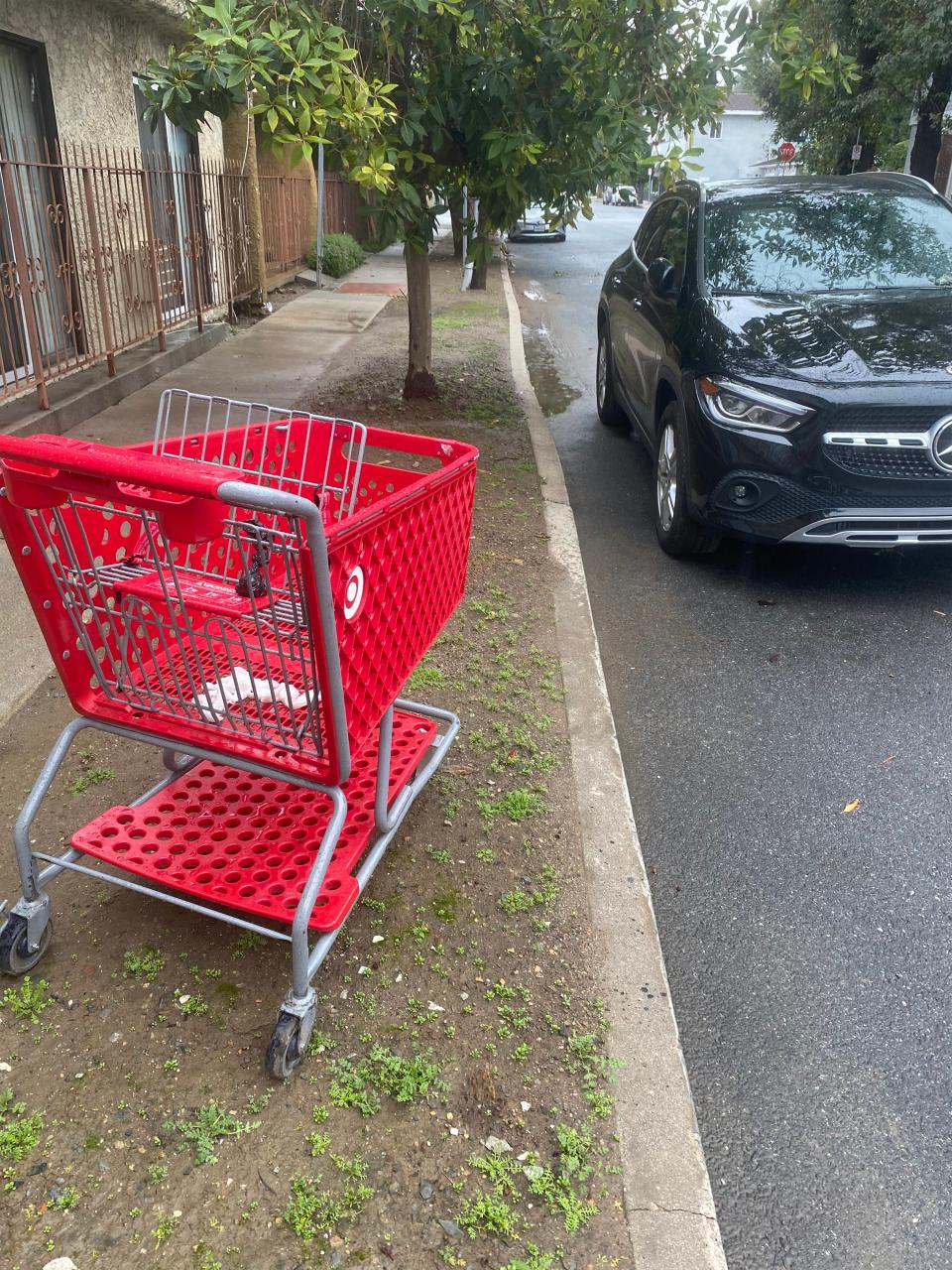Short story: Another reason the Mayor of Woodland Hills was arrested
The following short story is a work of fiction written by Stephen Cooper. It is the fifth part to his previous short stories published in the Advertiser: "The Mayor of Woodland Hills," "The Mayor of Woodland Hills is Awakened," "The Mayor of Woodland Hills is Arrested," and "A View to the Arrest of the Mayor of Woodland Hills."
Two weeks before the unelected but respected — amongst the homeless, the poor, and the marginalized — “Mayor of Woodland Hills” was arrested, the City Council’s Committee on Criminal Justice convened a hearing, one they called: “Initiative to Improve Woodland Hills By Increased Police Enforcement of Shopping Cart Thefts.”

The Mayor’s arrest — which dominated “the talk” in Woodland Hills — had happened right in front of St. Mark’s, hundreds of feet from the Mayor’s “garden apartment” (that had no garden) on Providence Street; it was one of twenty-five units situated at the rear of the facetiously named “Vistas on Ventura Boulevard” (where there were no vistas unless you counted the smog clouds constantly buffeting the Boulevard and blanketing the surrounding foothills).At the meeting, when Candice Chic, formerly Candice Cincotta before changing her name legally “for business,” was recognized, by the committee chair, she first looked down at her stylish stilettos and blushed; slowly, not making eye contact yet with anyone in the crowded and badly lit room, she rose elegantly from the wooden bench where she’d been skimming “Hairstyles of the Rich & Famous” — a trade magazine to which she subscribed at an industry discount rate.Her dramatically long, parted-down-the-center chestnut-colored hair, was blow-dried and combed carefully at her store — “Diva Salon” — several times daily in between serving or gossiping with her customers, so that each strand stood out straight and fine, and soft — never frizzed. Smoothing the pleat of her skirt, Candice looked up at her audience of at least 150 people, not counting the handful of drowsy, dreary, frankly dumpy gaggle of middle-to-nearing retirement age white male reporters and press photographers. Somehow she seemed to look directly at every eyeball ogling her — and there were quite a few; Candace smiled at them all slyly and knowingly, very Mona Lisa-ish — which was exactly what she was going for.Shuffling awkwardly — despite her sleek footwear — she’d walked from where she’d been sitting to the podium with its black microphone at the center of a U-shaped wood-paneled platform; around this the City Council members sat, slumped in a few cases, reclined in others, in high-backed, grey, faux-leather swivel chairs.“Hello everyone,” Candace began liltingly, but now she was looking only at Committee Chairman Buster Frinch — and quite coquettishly, too.Buster, in the second year of a two-year sabbatical from his firm, Pay the Piper, LLC, where, normally, when he wasn’t “giving back to the community” through highly publicized pro bono and other public interest work, was Managing Partner and head of the firm’s White Collar Crime Group. Formerly an Alabama homicide prosecutor, Buster still enjoyed holding court long after his courtroom days ended; he told his well-heeled law partners, his wide-eyed administrative assistants, even the hotdog vendors doling out their dogs to that good old Southern gent now doing L.A. in grand style: “I sure put more than my share of evil bastards on death row in my time.”“I’m Candice Chic, owner of Diva Salon on Providence Street,” Candace said into the microphone, smiling suggestively at Buster. “I want to say something. Diva Salon’s been in business since Madonna was singing ‘Like A Virgin.’ And now, The Material Girl’s got 6 kids! Though she’s always, always, had great hair, and, of course: style.”“Here’s the thing,” Candace continued, and now she turned — in turn — to look at each of the council members flanked on opposite sides of Buster. “You passed that law prohibiting the broken down, unsightly R.V.s and campers from parking on the Boulevard, at the park, and on the side streets — that really helped. It improved business. We don’t have homeless encampments needling their way anymore deeper and deeper into the Old Girard Tract — where I grew up, let me add. I’m not just a businesswoman — though I am that,” and here she shot an unveiled, arched, come hither eyebrow in Buster’s direction, “but I care about this neighborhood. It’s not just where I make my livelihood — though it is that, too.”And now Candace did a full pirouette in order to look directly at a number of other small business owners like her, single family homeowners, and the aforementioned press (for whom she preened, uber conscious she might make the front page of The Valley Gazette), as well as a few other stragglers whose interest and attendance at the hearing was hard to discern.Raising her voice together with her hands plaintively — and with an unexpected, sudden passion that shook the entire room awake and alert — Candace beseeched them: “The thing is, the problem is — the problem with these homeless people that is — well, they’re still here. They haven’t and they won’t leave Woodland Hills just because their crappy campers and rusty R.V.s are being ticketed and towed; they just park’em undercover in alleys, move’em from strip mall parking lot to strip mall parking lot, and hell, if all else fails, just park’em 10 miles way in Encino where they didn’t pass the camper/R.V. law. Bleeding heart liberals!”Candace emphasized “Encino,” letting each of its consonants and vowels drawl out slowly, enunciating it with the practiced pretentiousness and enmity that many of the original, historic Woodland Hills families felt toward their less privileged, more working class — more racially and ethnically diverse — neighbors.In full crescendo, a seasoned conductor who had mastered her powers of persuasion Monday through Thursday at her salon — performing for the snooty and soulless — for over 30 years, Candace gave it her all, proclaiming, breathlessly, as if it were a matter of life or death: “It’s these damn shopping carts these homeless steal that lets them keep so mobile; it’s this forever, 24-hours-a-day rolling fleet of purloined metal conveyances that lets them continue to sully Woodland Hills — driving away our customers and threatening our businesses, our parks, our streets, our sidewalks, and all too often, our very security. I don’t get it. It’s theft I tell you! You think Walmart, Target, Whole Foods, and so forth, leased those shopping carts out to this army of unfortunates? And yet, these days, day in and day out, rolling and squeaking and causing all manner of commotion up and down on Providence Street, or on Ventura — always you see’em on Ventura — they’re pushing these stolen carts, carting their carcasses around our clean town with their sundry and soiled life-baggage.”
Turning to face Buster now, Candace was flushed, but, after pausing a few moments for effect, a calculating, slithery coolness returned to her cheeks, and serpentine, in a voice one decrepit newsman wrote in his copy — before crossing it out — sounded like a hiss, she said: “They — these cart-stealing homeless — they’ve got to be arrested. Arrest ’em already!”

Stephen Cooper is a former D.C. public. defender who worked as an assistant federal public defender in Alabama between 2012 and 2015. He has contributed to numerous magazines and newspapers in the United States and overseas. He writes full-time and lives in Woodland Hills, California. Follow him on "X"/Twitter @SteveCooperEsq
This article originally appeared on Montgomery Advertiser: Short story: Another reason the Mayor of Woodland Hills was arrested

